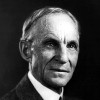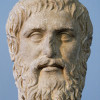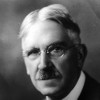“ To attempt to determine the end of man apart from a knowledge of the ruling end which gives law and unity to nature is impossible. ”
John Dewey, Democracy and Education (1916). copy citation
| Author | John Dewey |
|---|---|
| Source | Democracy and Education |
| Topic | unity law |
| Date | 1916 |
| Language | English |
| Reference | |
| Note | |
| Weblink | http://www.gutenberg.org/files/852/852-h/852-h.htm |
Context
“Since he accepts the idea that the ultimate object of knowledge is the discovery of the good or end of man, and is discontented with the Socratic conviction that all we know is our own ignorance, he connects the discussion of the good of man with consideration of the essential good or end of nature itself. To attempt to determine the end of man apart from a knowledge of the ruling end which gives law and unity to nature is impossible. It is thus quite consistent with his philosophy that he subordinates literary studies (under the name of music) to mathematics and to physics as well as to logic and metaphysics. But on the other hand, knowledge of nature is not an end in itself;”
source



